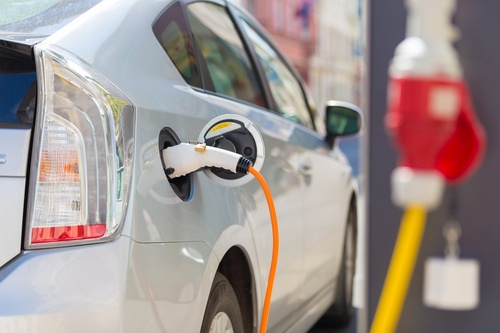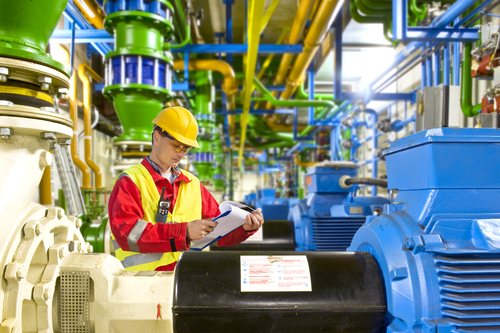Chemical companies work on environmentally friendly “green” plastics
Under the circumstances of this predicted enormous growth, South Korean chemical companies are increasing their efforts in research and development and in the expansion of production facilities. LG Chem has recently developed a fully biodegradable plastic with properties identical to those of conventional plastics. In addition, LG Chem has entered into a strategic partnership with Neste, the world’s largest biodiesel company, to develop environmentally friendly materials for the industry from renewable, biologically produced raw materials.

Within the SK Group, the SKC and SK Chemicals divisions focus on the development of environmentally friendly materials. SKC already brought biodegradable plastic films made of polylactides to market maturity in 2009. These are successfully used for the packaging of food, packaging labels, plastic bags and other products. SK Chemicals introduced Ecotria, a raw material for packaging of cosmetic products, which consists of a mixture of copolyester with recycled PET. Hanwha Solutions, on the other hand, is working on a compound of polyethylene and biodegradable plastic to overcome the limitations of using PLA and PBAT.
The Samyang Group was able to successfully synthesize the substance isosorbide as early as 2014 and produce it in an industrial process. The material, which is made from natural raw materials derived from plant starch, can replace chemical substances in paints and adhesives. The chemical company CJ CheilJedang is expanding its business to the development of biodegradable or renewable raw materials. To this end, it will build a new production line for the manufacture of polyhydroxyalkanoates (PHAs) in Pasuruan, Indonesia, next year. The plant will have a capacity of 5,000 tons of the biodegradable and also ocean-degradable material. Many products imported into South Korea must be tested and certified in advance. KC certification, or Korea Certification, is all about identifying and mitigating a potential risk to safety, health and the environment. The KC Mark or KC Certificate is similar to the European CE mark and applies to 730 different products. MPR International GmbH – Korea Certification is represented by its own subsidiaries at five locations and thus completely covers the demand for certification services for the South Korean market. Our experts are available to you at any time and without obligation to answer your questions regarding a Korea certification.
If you need assistance or have any questions, feel free to contact us any time.
Tel.: +49-69-2713769259
Email: info@korea-certification.com
Urgent questions?
Please do not hesitate to contact us via chat. You will find the chat window at the bottom right of each page (if this is not visible, please check your browser settings).
For more information you can download our free brochure “Korea Certification Made Easy – The Booklet“.
Hyundai Group sold 350,000 “green” vehicles in 2019
According to a report by the Korean Automobile Manufacturers Association (KAMA), a total of 5.27 million vehicles with alternative drive systems were sold worldwide. Alternative drives include fuel cells, plug-in hybrids and hybrid vehicles as well as battery-powered electric vehicles. The sales figures for these vehicles rose by 14.4 percent to a new record high in 2019. Hybrid vehicles accounted for the lion’s share of these sales, at 3.17 million, an increase of 20 percent. Their sales figure and year-on-year increase is the highest since 2015. 2.1 million battery-powered electric cars were sold, 6.1 percent more than in the previous year. According to analysts, there was weaker demand in this segment due to the withdrawal of subsidies for electric vehicles in China.

By manufacturer brand, Toyota leads the way with a share of 37 percent or 1.98 million vehicles, an increase of 17.9 percent over the previous year. The Japanese company accounts for around 60 percent of global sales of hybrid vehicles or 1.92 million units. Tesla is in second place with 460,000 vehicles and an increase of 80.3 percent, Honda is in third place with 390,000 vehicles and an increase of 27.4 percent. Hyundai and Kia, which are based in South Korea, are in fourth place worldwide with 350,000 vehicles sold with alternative drive systems, an increase of 25.1 percent over the previous year. Broken down into individual vehicle categories, the Hyundai Group has sold 220,000 hybrid vehicles and 130,000 battery-powered vehicles. Compared to the previous year, sales figures rose by 32.7 and 14.5 percent respectively.
Looking at battery-powered electric vehicles, Tesla is the market leader for the second year in a row, followed by BYD from China, followed by BMW, Hyundai and Kia. The global sales markets for electric vehicles, broken down by region, show an enormous increase of 51.1 percent over the previous year in Europe, with 1.5 million vehicles sold. China follows in second place with 1.31 million and a plus of 7.6 percent. The decline in China is due to the discontinuation or reduction of subsidies for electric cars. In third place is Japan with 1.14 million vehicles and a slight increase of 0.5 percent.
MPR International GmbH will be happy to advise you regarding a Korea certification in the automotive sector. We have already successfully accompanied many large automotive suppliers and also vehicle manufacturers with locations in Korea in their certification projects and have been supporting these companies for several years. Our experts are available to you at any time by phone or e-mail for questions regarding an upcoming Korea certification.
If you need assistance or have any questions, feel free to contact us any time.
Tel.: +49-69-2713769259
Email: info@korea-certification.com
Urgent questions?
Please do not hesitate to contact us via chat. You will find the chat window at the bottom right of each page (if this is not visible, please check your browser settings).
For more information on KC certification, KC for electronics, KC EMC certification, KCs certification (KOSHA) and others, you can download our free brochure “Korea Certification Made Easy – The Booklet“.
KGS Becomes First IECEx Approved Certification Body under Service Facility Scheme in Asia
The Korea Gas Safety Corporation (KGS) is the first certification body in Asia that has been accredited under the IECEx Service Facility Scheme. This allows KGS to certify maintenance and repair companies for explosion-proof equipment under the IEC 60079-19 standard.
The IECEx Service Facility Scheme is an international ex-proof certification system that evaluates the technical capabilities of companies in charge of maintenance and repair of explosion-proof equipment used in hazardous areas. The IEC 60079-19 standard was published in 2006 and standardizes the requirements and necessary competencies for the repair and maintenance of ex-proof equipment. Apart from standardizing and elevating safety standards, the norm makes accreditation much easier and more transparent, because it provides one universally accepted accreditation.

An IECEx Certificate of Conformity shows that a Service Facility obtaining the certification has been independently assessed. A successful certification shows that a company has competent and trained staff, appropriate equipment and implemented procedures that can be relied on for repair, overhaul or modification work in compliance with IECEx requirements, like IEC 60079-19. Furthermore, it shows, that the location of the service facility has been audited and their quality system is in conformity with IECEx requirements.
There are only 16 certification bodies worldwide that are accredited under this scheme.
KGS became an IECEx certified body in 2003 and the addition of this new certification scope makes it possible to provide maintenance company certification services for explosion-proof devices in all industries.
In Korea, KGS CODE GC103, a standard on Inspection and Maintenance of Explosion-Proof Electrical Equipment, was established in 2018, which stipulates in detail the required staff qualifications, inspections and type of methods for safe maintenance of explosion-proof devices. This helped KGS with achieving the IECEx accreditation and will open up more business for explosion-proof manufacturers and service companies.
Do you have questions about the KCs certification for explosion proof components? We can assist with the certification of your explosion proof products in Korea. Please do not hesitate to contact us via chat. You will find the chat window at the bottom right of every page (if this is not visible, please check your browser settings).
We offer certification services for all product areas, including KC certification for consumer products and especially electronics, KC EMC certification for electronic products and KCs certification for machinery and KCs for explosion-proof products. We are at your disposal for any questions about Korea certifications.
If you need assistance or have any questions, feel free to contact us any time.
Call us: +49-69-2713769259 for Europe or +1(773)654-2673 for America.
Email: info@korea-certification.com
South Korean companies leading in hydrogen technology for transportation
The Hyundai Motor Group announced that it will invest a total of 6.19 billion US dollars in the development of a hydrogen industry by 2030. It will create 51,000 new jobs and produce 500,000 hydrogen vehicles. In July of this year they started the world’s first serial production of commercial vehicles with fuel cells and exported them to Switzerland. The Hyundai Rotem division has recently added hydrogen filling stations to its services. The company’s own hydrogen conversion plant in Uiwang, Gyeonggi Province, is scheduled to start operations this year. In addition, Hyundai Mobis has built a new fuel cell manufacturing plant in Chungju, North Chungcheong Province in 2018 and plans to expand annual production capacity to 40,000 units by 2022.

Another company from South Korea, the Hanwa Group, is working on the production of environmentally friendly “green” hydrogen, which is produced from renewable energies such as photovoltaics instead of oil or natural gas. To this end, the chemicals division, Hanwa Solutions, has invested 26.4 million US dollars in a plant for the production of hydrogen using the electrolysis process. The joint project between Hanwa and the German government is scheduled to start in 2023. Q Cells, a subsidiary of Hanwa, is to supply and operate the solar plants, while the Chemicals division will be responsible for the production of hydrogen, which will be stored in tanks developed in-house. Hanwa Energy has already built and commissioned a power plant in July, which will be operated with residues from the petrochemical industry that are converted into hydrogen. The costs amounted to 226 million US dollars, the plant has a capacity of 50 megawatts and can generate up to 400,000 MWh of energy annually.
In the city of Ulsan, Hyosung and the Linde Group are building what is currently the largest plant for the production of liquid hydrogen. The plant is scheduled to be completed in 2022 and cost 266 million US dollars. The liquid hydrogen will be used to power vehicles, drones, ships and forklift trucks. In addition, 120 filling stations for liquid hydrogen are to be built nationwide. MPR International GmbH – Korea Certification is represented by its own companies at five locations and thus completely covers the demand for certification services for the South Korean market. We offer certification services for all product areas, including KC certification for consumer products and especially electronics, KC EMC certification for electronic products and KCs certification for machinery and KCs for explosion-proof products. We are at your disposal for any questions about Korea certifications. Let us advise you free of charge!
If you need assistance or have any questions, feel free to contact us any time.
Tel.: +49-69-2713769259
Email: info@korea-certification.com
Urgent questions?
Please do not hesitate to contact us via chat. You will find the chat window at the bottom right of each page (if this is not visible, please check your browser settings).
For more information you can download our free brochure “Korea Certification Made Easy – The Booklet“.



